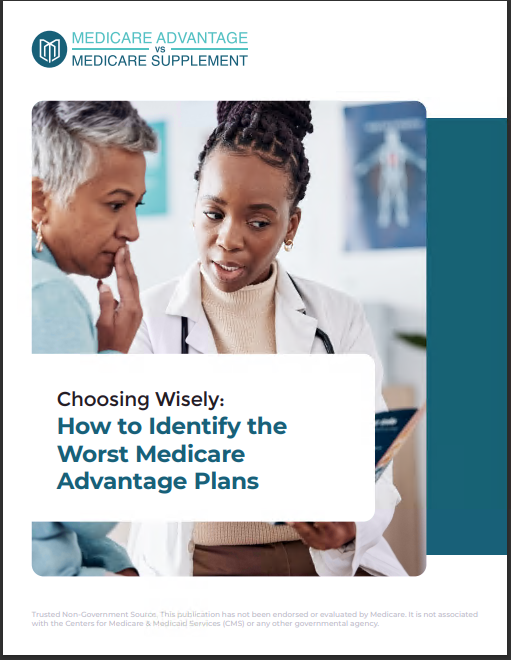Key Takeaways
-
Medicare Part A covers inpatient hospital care, but costs and coverage limits can impact your expenses. Understanding deductibles, coinsurance, and benefit periods is crucial.
-
Enrollment timing and eligibility rules affect your access to Medicare Part A benefits. Late enrollment can lead to penalties, and premium-free coverage depends on your work history.
What You Need to Know About Medicare Part A Coverage
Medicare Part A is your safety net for hospital stays and other inpatient care, but there are important details that can affect how much you pay and what services you receive. Whether you’re preparing for retirement or already enrolled in Medicare, understanding how Part A works will help you make informed healthcare decisions.
1. The Cost Breakdown: Deductibles, Coinsurance, and Benefit Periods
Even though many people qualify for premium-free Part A, inpatient hospital care isn’t entirely free. Medicare Part A has several cost-sharing components that determine how much you’ll pay when you need hospital care.
Understanding the Part A Deductible
In 2025, the Medicare Part A inpatient hospital deductible is $1,676 per benefit period. This is the amount you must pay before Medicare covers your hospital expenses. Unlike Medicare Part B, which has an annual deductible, Part A’s deductible resets each benefit period, meaning you could pay it more than once a year.
A benefit period starts when you’re admitted to a hospital or skilled nursing facility and ends 60 days after you’ve left. If you’re readmitted after that period, a new benefit period begins, and you’ll have to meet the deductible again. This structure can make hospital costs unpredictable if you require multiple hospital stays in a year.
Additionally, hospitals often charge for extra services like specialized treatments, medical supplies, and certain procedures, which could lead to out-of-pocket expenses beyond what Medicare covers. Planning for these costs can help you avoid unexpected medical bills.
Coinsurance Costs for Extended Hospital Stays
After you meet the deductible, Medicare covers the full cost of your hospital stay for the first 60 days. But if you stay longer, you’ll pay daily coinsurance amounts:
-
Days 61-90: $419 per day in coinsurance.
-
Days 91 and beyond: You enter your lifetime reserve days, where coinsurance jumps to $838 per day for up to 60 days over your lifetime.
-
After lifetime reserve days: You must cover 100% of the costs out of pocket.
Skilled nursing facility care also has its own cost-sharing rules. For example, Medicare Part A fully covers the first 20 days, but from days 21-100, you pay $209.50 per day in 2025. After day 100, you’re responsible for the full cost.
It’s also important to note that not all hospitals or skilled nursing facilities accept Medicare, and those that do may have different billing practices. Always verify coverage with your healthcare provider before admission.
2. Who Qualifies for Medicare Part A and How Enrollment Works
Medicare Part A eligibility is based on work history and age. Most people qualify for premium-free Part A if they or their spouse have paid Medicare taxes for at least 40 quarters (10 years). However, if you haven’t met that requirement, you may need to pay a monthly premium of up to $518 in 2025.
When and How to Enroll in Part A
Your enrollment process depends on your situation:
-
Automatic Enrollment: If you’re already receiving Social Security or Railroad Retirement Board benefits at least four months before turning 65, you’ll be automatically enrolled in Medicare Part A and Part B.
-
Manual Enrollment: If you’re not yet receiving Social Security, you must sign up for Medicare during your Initial Enrollment Period (IEP), which starts three months before your 65th birthday and lasts for seven months.
-
Special Enrollment Period (SEP): If you delayed Medicare because you had employer-sponsored insurance, you can enroll later without penalties. SEPs typically last eight months after your employer coverage ends.
-
General Enrollment Period (GEP): If you missed your initial opportunity, you can enroll during the GEP from January 1 to March 31, but late penalties may apply.
Late Enrollment Penalties for Part A
If you don’t qualify for premium-free Part A and delay enrollment, you could face a penalty that increases your monthly premium by 10% for twice the number of years you were eligible but didn’t sign up. For example, if you waited two years, you’d pay the higher premium for four years.
Additionally, if you delay enrolling in Part A and experience a major health event, you could end up paying significantly more out of pocket for hospital care before your coverage begins. Planning ahead ensures you won’t face unexpected medical bills.
3. The Impact of Medicare Part A Coverage Gaps on Your Care
While Medicare Part A covers hospital stays, there are gaps in coverage that could affect your financial security. Understanding these limitations helps you prepare for potential expenses.
What Medicare Part A Doesn’t Cover
Part A does not cover:
-
Long-term custodial care in a nursing home if it’s not medically necessary.
-
Private hospital rooms, unless medically necessary.
-
Personal items like toiletries, television, or phone use during hospital stays.
-
Care outside the U.S., except in very limited circumstances.
-
Certain outpatient services, which may fall under Medicare Part B.
The Importance of Supplementary Coverage
Many Medicare beneficiaries look into additional coverage options to help with out-of-pocket expenses. Since Part A doesn’t cover all hospital-related costs, you may need extra financial protection. Some options include employer-sponsored retiree insurance, Medicaid (for low-income individuals), or other supplemental insurance.
Another option is exploring Medicare Advantage plans, which combine Medicare Part A and B benefits with additional coverage. However, these plans come with different costs and restrictions, so it’s essential to compare your options carefully.
Making Smart Medicare Part A Decisions
Understanding Medicare Part A’s cost structure, eligibility rules, and coverage limitations ensures you’re prepared for hospital expenses. Reviewing your expected healthcare needs and potential hospital costs can help you make the right choices.
It’s always a good idea to review your Medicare coverage annually to ensure it still meets your needs. Healthcare costs can change over time, and selecting the right plan can make a significant difference in managing expenses.
For personalized advice and assistance with Medicare Part A enrollment, get in touch with a licensed agent listed on this website. They can help you navigate your options and ensure you’re making informed healthcare decisions.










